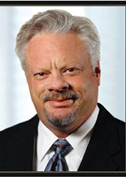© 2014 The Texas Lawbook.
By Natalie Posgate
Staff Writer for the Texas Lawbook
DALLAS (May 14) – A Dallas jury began deliberations Wednesday to determine whether Houston-based law firm Baker Botts acted with negligence by not disclosing a potential conflict of interest to a former client.
Lawyers for Axcess International, Inc. told the six-person jury that Baker Botts breached its fiduciary duty to the Addison-based wireless intelligence company by helping a competitor, Savi Technologies, Inc., obtain patents for radio frequency identification products (RFID) while it was representing Axcess for the same venture. Axcess is seeking $51 million in damages.

“Why did they do it? Money,” said Axcess’ lead lawyer, Dallas attorney Steve Aldous of Forshey Prostok during closing arguments Wednesday. “Baker Botts didn’t want to pass up on the good paying client, so they kept Axcess in the dark.”
Baker Botts adamantly refutes the charges, saying that Axcess’ allegations in the case were made in bad faith.
“There is no connection between any failure of Baker Botts and any harm they (Axcess) suffered,” said Murray Fogler, a partner at Beck Redden in Houston who represents Baker Botts. “There is no negligence, no harm and no proximate cause.”
Legal experts who have been following the case say that even if Axcess wins a large verdict, the company faces an uphill battle on appeal because the appellate courts in Texas have been stingy when it comes to upholding significant damage awards in legal malpractice cases.
Axcess hired Baker Botts in 1998 for general intellectual property advice and to help it draft, file and pursue patents for RFID technology. By July 20, 1999, Baker Botts had filed multiple patent applications for Axcess.
In 1999, Baker Botts also agreed to represent Savi on pursuing RFID technology patents. In May 2002, Axcess discovered a press release Savi had issued describing a new product offering with pending patent applications that could infringe Axcess’ patent applications. Axcess called Baker Botts with concerns about the potential infringement, but the firm simply “deflect[ed] the issue” and failed to run a conflicts check, Axcess’ complaint said.
Axcess claims Baker Botts knew early on about its conflict of interest with Savi and had multiple opportunities to inform Axcess of the conflict, but never did. In fact, Axcess says it did not learn about the conflict until nearly a decade later.
In 2009, Axcess was subpoenaed to testify in patent infringement litigation between Savi and another competitor, Aeroscout, which claimed Savi’s patents were invalid because of Baker Botts’ conflicted representation and because Axcess’ patents had priority over Savi’s patents.
Aldous told jurors that Savi obtained millions of dollars in U.S. military contracts because Savi had the RFID technology patents that should have belonged exclusively to Axcess.

Fogler argued that the U.S. Patent Office did not think that Axcess and Savi’s patent applications were the same, and that the core of Axcess’ invention consisted of ideas “that have been in the public domain” for many years.
“What we’re talking about are improvements, nuances on systems that have been available for a long time,” he said.
Jon Suder, another lawyer representing Axcess, told jurors that they have the unique opportunity to tell a mega-law firm with offices all over the world whether they approve of the way it does business.
“You don’t get to give them a corporate timeout, or take away their car keys or their toys; the only language they know is money,” Suder said. “How you answer this verdict one way or the other is going to send a message. All I can ask is that you send the right message.”
Baker Botts’ legal team, along with Fogler, included Dallas attorneys Paul Koning and Brent Brasden of Koning Rubarts and Jas Brar and Michelle Gray of Beck Redden.
Glenn Orman, an attorney with Suder in Fort Worth at Friedman Suder & Cooke, also represented Axcess.
Dallas County Court at Law Judge Mark Greenberg presided over the three-week trial.
© 2014 The Texas Lawbook. Content of The Texas Lawbook is controlled and protected by specific licensing agreements with our subscribers and under federal copyright laws. Any distribution of this content without the consent of The Texas Lawbook is prohibited.
If you see any inaccuracy in any article in The Texas Lawbook, please contact us. Our goal is content that is 100% true and accurate. Thank you.
